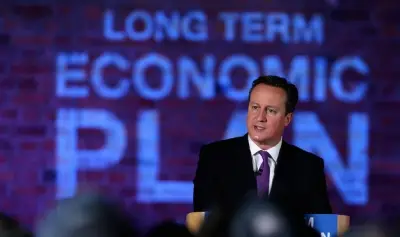With less than two months until the General Election, it’s rare that you’ll hear any senior Conservative on TV or radio without them mentioning the fabled “long-term economic plan”. On becoming Prime Minister David Cameron vowed that his government would be the most “pro-growth” and “pro-enterprise” ever. Five years on, how has he fared?
HIT
Investing in Infrastructure
Upon entering government, the Conservatives’ primary economic priority was to reduce the deficit. This has meant extensive cuts in areas such as welfare and local authority budgets. Despite this, the Government has championed infrastructure spending as a way to stimulate growth in the vital construction sector. Chancellor, George Osborne has committed cash to huge projects including CrossRail, HS2 and a £28bn investment in Britain’s roads. The Tory leadership will argue that this investment has contributed to creating nearly two million new private sector jobs since 2010.
MISS
Supporting Small Business
The Government spends around £4.5bn on SME suppliers. In 2011, the Government pledged to pay 80% of these businesses within five working days of receiving an invoice. This policy would help businesses manage all-important cash flow which is critical for smaller and medium sized firms. However, this policy somewhat backfired when it transpired that a third of SMEs were not being paid on time. A report from the National Audit Office also found that the Government had actually lost the original paperwork that set out the policy objectives and estimated costs of this policy. Nice thought, but try harder next time!
HIT
Strengthening Business Links with Emerging Markets
George Osborne, in particular, has been a vocal advocate of the UK’s export strategy. The Chancellor attended and spoke at the first UK-China Bilateral Investment Conference which seeks to strengthen Anglo-Chinese business relations. Osborne proudly declared that; “Britain now attracts 50% more investment from China as our nearest European rival and British business in China is growing exponentially.” Britain’s commercial links with China have become so close that the Obama administration criticised the UK’s “constant accommodation” for China.
MISS
Clamping Down on Immigration
The reality of politics meant that the Conservatives had to respond to the electoral threat of UKIP by clamping down on immigration. Skills shortages in the UK have forced many businesses to look overseas for employees. Earlier this year, British inventor Sir James Dyson attacked Theresa May’s plans to expel foreign students after graduating, warning that ‘short-sighted’ immigration policies will result in the UK losing out on top science and engineering talent.
HIT
Cutting Corporation Tax
“Britain is open for business”, declared George Osborne in his 2013 Budget. To show he meant it, he cut corporation tax to 20%, seeing Britain implement one of the lowest corporation tax rates in the western world. This move was designed to attract enterprises to set up shop in Britain, create jobs and increase tax receipts in the process. 12 months later, figures showed that more than 66,000 jobs had been created in the UK by foreign businesses. Nice work, George!
Having stimulated economic growth after years of stagnation, it would be hard to argue that this Government hasn’t been good for British business. Despite one or two hiccups along the way, it’s not hard to see why so many of Britain’s business groups are pinning their hopes on a Tory Government come May 8th.
Leon Emirali is an Account Manager at PLMR. Leon most recently stood as a Conservative Candidate in the 2014 London Borough of Sutton Council Elections.





